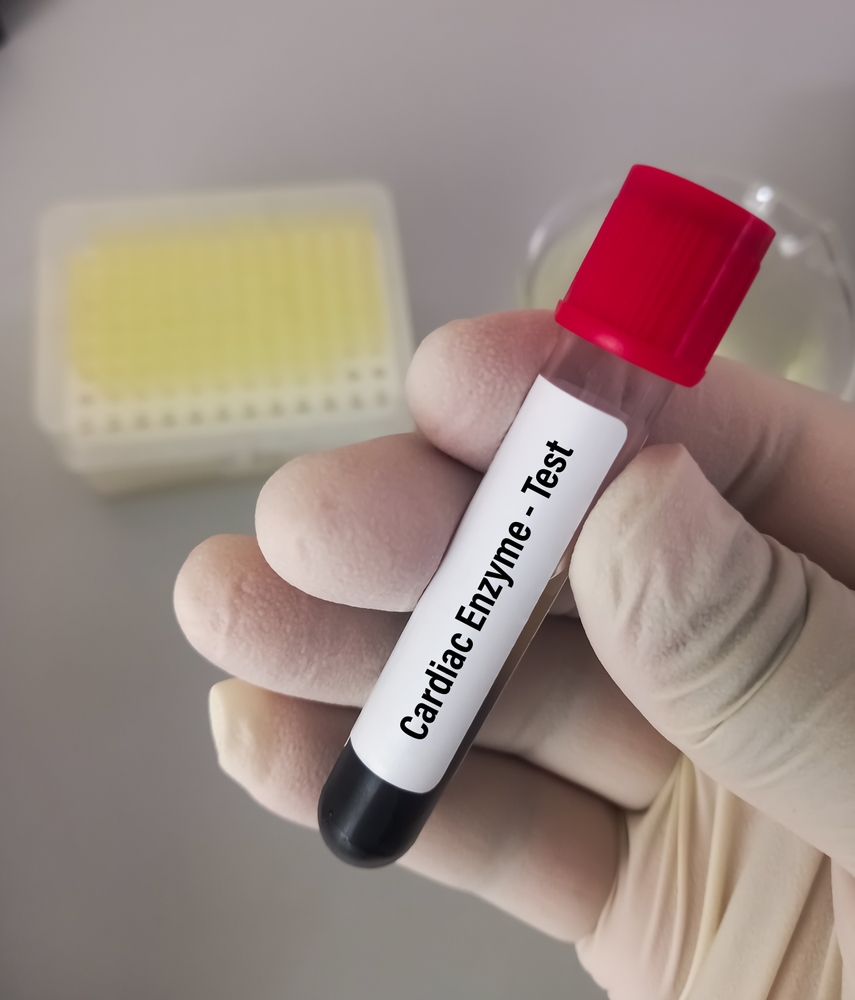Mark Kopec Now
Cardiac Enzymes
Cardiac Enzymes and Medical Malpractice: A Comprehensive Overview
Understanding Cardiac Enzymes
Cardiac enzymes are proteins that damaged heart muscle cells release into the bloodstream. They play a pivotal role in diagnosing heart attacks and other cardiac conditions. The Kopec Law Firm provides this article to help you comprehend how these enzymes function and when they are tested. Then you can better understand the potential role of medical malpractice in cases of heart damage.

Cardiac Enzymes and Heart Anatomy
The human heart is a muscular organ with four chambers. Each chamber is responsible for pumping blood throughout the body. When the heart muscle is damaged, as occurs during a heart attack, these enzymes are released into the bloodstream.
When to Test for Cardiac Enzymes
A healthcare provider typically does cardiac enzyme tests when they suspect a heart attack. This often occurs when a patient presents with chest pain, shortness of breath, or other symptoms of a cardiac event. However, it is important to note that while elevated cardiac enzymes are often indicative of a heart attack, they are not always the only cause. Other conditions, such as acute pericarditis or severe muscle strain, can also lead to elevated enzyme levels.
How Cardiac Enzymes Are Tested
Cardiac enzyme tests usually involve blood tests. A healthcare professional will draw a blood sample from a vein in the arm. Then they send the sample to a laboratory for analysis. The specific enzymes tested may vary depending on the healthcare provider’s assessment and the patient’s symptoms.
Who Orders and Conducts the Test
The doctors who typically order cardiac enzymes tests are:
- Emergency Medicine Physicians: When patients present with acute symptoms of a heart attack.
- Cardiologists: Specialists who diagnose and treat heart conditions.
- Primary Care Physicians: In some cases, particularly if the patient has a history of heart disease.
A laboratory technician or phlebotomist usually conduct the test.
What Cardiac Enzymes Show
The tests commonly cover several cardiac enzymes, including:
- Troponin: A protein found in heart muscle cells. Elevated troponin levels are a strong indicator of a heart attack. Troponin levels typically begin to rise within a few hours of a heart attack and can remain elevated for several days.
- CK-MB (Creatine Kinase-MB): An enzyme found in heart muscle and skeletal muscle. Elevated CK-MB levels can also indicate a heart attack, but they are less specific than troponin. CK-MB levels typically begin to rise within a few hours of a heart attack and peak within 24-36 hours.
How Cardiac Enzymes Can Support Medical Malpractice Claims
If a cardiac enzyme test shows elevated levels, it can provide strong evidence that a patient experienced a heart attack. If the heart attack was the result of medical negligence, such as a delay in diagnosis or treatment, this evidence can be used to support a medical malpractice claim.
However, it is important to note that elevated cardiac enzymes alone do not necessarily prove medical malpractice. To establish a successful medical malpractice claim, it is necessary to demonstrate that the healthcare provider breached the standard of care and that this breach directly caused the patient’s harm.
Factors to Consider in Medical Malpractice Cases
- Timeliness of Testing: Delays in ordering or conducting cardiac enzyme tests can be a significant factor in medical malpractice cases. If a healthcare provider fails to promptly assess a patient with symptoms suggestive of a heart attack and order appropriate tests, this can contribute to the patient’s injury.
- Interpretation of Results: Misinterpretation of cardiac enzyme test results can also be a basis for a medical malpractice claim. If a healthcare provider fails to recognize the significance of elevated enzyme levels or dismisses them as insignificant, this can lead to a misdiagnosis and delay in treatment.
- Failure to Follow Up: Even if doctor performs cardiac enzyme tests in a timely manner and correctly interprets the results, the doctor may still be liable for medical malpractice if they fail to follow up with appropriate treatment. For example, if a patient is diagnosed with a heart attack but not given timely intervention, such as a percutaneous coronary intervention (PCI) or coronary artery bypass graft (CABG), this can lead to further heart damage.
The Role of Expert Testimony
In medical malpractice cases involving cardiac enzymes, expert testimony from a qualified medical professional is often crucial. An expert can help to establish the standard of care in the relevant medical community and determine whether the healthcare provider’s actions or omissions fell below that standard.
Conclusion
Cardiac enzymes are invaluable tools for diagnosing heart attacks and other cardiac conditions. However, it is important to understand that elevated enzyme levels alone do not necessarily prove medical malpractice. To establish a successful claim, it is necessary to demonstrate that the healthcare provider’s negligence directly caused the patient’s harm. By understanding the role of cardiac enzymes in medical malpractice cases, patients and their families can better protect their rights and seek appropriate compensation.
If you have a potential medical malpractice case, then visit the Kopec Law Firm free consultation page or video. Then contact us at 800-604-0704 to speak directly with Attorney Mark Kopec. He is a top-rated Baltimore medical malpractice lawyer. The Kopec Law Firm is in Baltimore and pursues cases throughout Maryland and Washington, D.C.





